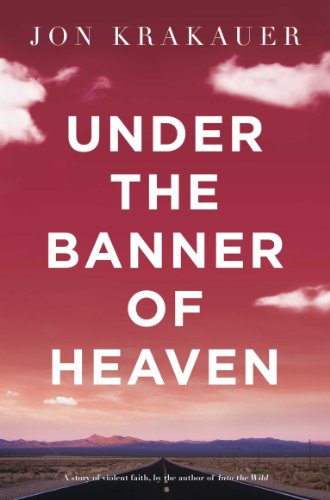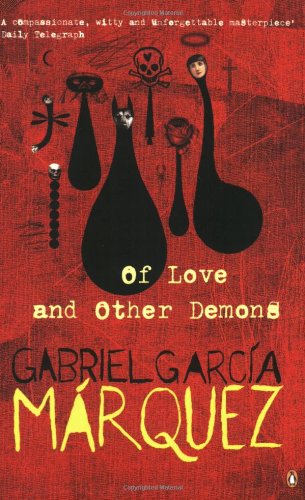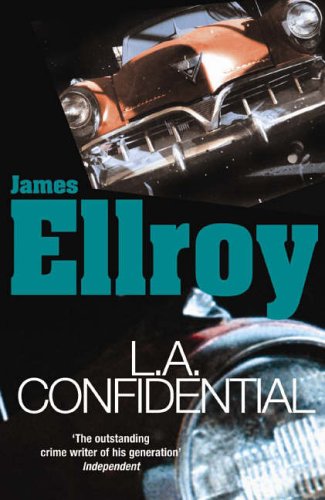I needed the cash to buy my daughter a trumpet and to ease my Ex�s
complaining about the rise in her energy bill. I was waiting in the dining
area of Chili Peppers, watching the front door for my contact.
College-aged kids had been coming in, happy about the first heat wave of
spring. Around two, a tall man with a part in his hair entered wearing
sunglasses and a polo shirt. Enrique hadn�t told me much about my contact
other than that the contact wanted me to intimidate a nuisance.
�Mr. Romo.�
I didn�t stand or shake his hand.
�Pico,� I said. �Call me Pico.�
He cleared his throat, looked around. His skin was ruddy and he had a cleft
in his chin. He looked like a yacht sailor who couldn�t find his gin.
�Relax,� I said.
He pulled up a chair and sat.
�Do you want to count it?�
�No,� I said.
He started cracking his knuckles and chewing on his chapped lower lip.
�This guy,� I asked, �Where can I find him?�
�I don�t want you to hurt him. I mean it. He�s��
�Do you have an address?�
�I don�t know. He hangs around the mission.�
�Name.�
�Astengo.�
�Mexican?�
�I don�t know. Probably. Maybe. He�s a pain in the ass and I�m tired of it.
I want him away from my place, my customers and my goddamn bathroom.�
�Your bathroom?� I asked, surprised.
�He�s homeless, okay?�
�Why don�t you call the cops?�
He leaned toward me. �Look, I manage a high-profile business that frowns on
bad press.�
�What kind of business?�
�Bookstore. A corporate one and there�s strict guidelines about treating
the customer.�
�Is he a customer?�
�No.�
He was holding back information that told me this wasn�t going to be an
easy job. �Who is this guy?�
�I told you. His name is Astengo and��
�No,� I said. �There�s more and I want to know now.�
He removed his sunglasses. His eyes were red. �You going to back out?�
�I�m thinking I underbid this job.�
�Fine,� he said. �I�ll give you another five but that�s it.�
�Deal.�
He messed with his hair, and said, �He�s a street poet and he doesn�t have
any legs and he hates the bookstore. At least twice a week, he wheels in,
takes the elevator up to the second floor and uses the bathroom. He claims
he can�t reach the toilet paper so he uses his hands. It�s disgusting. Shit
everywhere. I�m sick of it and so is my staff.�
#
Around eight the next morning I showed up at the mission, which is the
historic heart of this city. You can still pray in the church but the rest
of the living area is a museum. A lady from the chamber of commerce told me
the priests used to feed the homeless but city officials didn�t like the
grizzled crowd mingling with the downtown customers so they moved the chow
line out of city limits.
Astengo wasn�t far. He was under a tree by a bench. He had thick shoulders
and arms and a bird tiny head with thinning black hair. He wore wire rim
spectacles.
�Nice day,� I said.
He measured me.
�You a priest?�
�No,� I laughed. �Do I look like one?�
�More than I do,� he said.
I stepped closer. �Name�s Pico.�
He gripped my hand and squeezed. He had crushing strength.
�Astengo.�
We stared at each other.
�You Mexican?� he asked.
�Half.�
�Me too,� he said. My grandmother was a Swedish whore who got knocked up by
a bean picker from Michoacan. They met in a bar in L.A. in the 20s. I was
told Popi had a big cock.�
Astengo was sneering. �What�s on your mind, Mister�Pico?�
I�d expected a weary invalid I could buy lunch and later coax into my van.
I figured I�d cruise up the coast and stop at some overlook near Big Sur. I�d push him close to the edge, tell him if he ever wheeled into Brookstone
again he�d be sea lion chum. But this man wanted to die.
�I�ve heard about you,� I said. �I�m a freelance writer and��
�Which paper?�
�The Times.�
He shook his head. �I don�t think so.�
�Okay,� I said. �Just do what you do and I�ll watch, report and send it in
with secondary sources.�
Astengo backed up his chair. �There must be some cop in your family, Pico,
because you�re a pushy prick.�
I nudged one of the wheels of his chair with my shoe. �La Migra,� I said.
Astengo�s smile revealed swollen gums and brown teeth. �You�re a pendejo,
aren�t you, Pico?�
�Sometimes,� I said. �Sometimes.�
#
We cruised over to Mclintock�s and ate in the back. Astengo ordered
pancakes, eggs, bacon and coffee. I had a grapefruit.
�Tell me, Pico, are you married?�
�Not anymore.�
�She a vaca?�
�Hardly. Thin but plump in the right places.�
The waitress brought our order. She was freckle-faced and leery of Astengo.
He asked, �Do you have any prunes, honey?�
�No,� she said.
�Prune juice?�
�No.�
I had a feeling Astengo fouled many a bano in the city.
�Anything else?� she asked.
I waved her away and told Astengo he was a real bastard.
�I try,� he said.
He had manners and patience when he ate. When his mouth wasn�t full, he�d
ask me another question. I thought I was asking the questions but he said he
had to know who he was talking to.
�Tell me, Pico, who cheated on who?�
�She did.�
�You know the cabron?�
�Her yoga teacher.�
Astengo�s face lightened again. �Those guys never cum, do they, Pico? Was
that your problem�a quick trigger?�
There was something unreal about Astengo, like he�d been misplaced in time,
and misplaced for a reason. I wanted to know how he lost his legs and why he
flung shit against bathroom walls. We stared at each other.
�Any kids?� he asked.
�One,� I said. A daughter. Magdelena. We call her Lena.�
�I knew a Lena,� he said, but didn�t elaborate. He sliced off a piece of
pancake, dipped it in maple syrup, snatched some scrambled egg with salsa on
it, and chewed, like he was tasting his first and last meal, remembering his
Lena. I thought then, this guy is cagey. He�s screwing with me. I don�t
usually get rattled but I was. I�d worn a T under my bowling shirt and it
was wet. I heard a buzz in my right ear and a different buzz in my left. I
was looking out the back door at the trees above the creek, thinking, He�s
half a man, Pico, half a man. It�s not right.
My hearing cleared and Astengo said, �Don� feel sorry for me. I�ve done and
said a lot of things that have been malo, muy malo, and I have a feeling you
have to.�
The waitress returned and I gave her a twenty. I made her day when I said,
�Keep it.�
Astengo showed me his puffy gums again. �I should have ordered the lobster
omelette.�
Before I knew it, I was chasing him. I was surprised how fast he got out of
the restaurant and up the street. I felt funny trotting after him and a
little lightheaded. It was in the low eighties and bright. He was cruising
up the middle of the sidewalk, his chair back on two wheels, his shoulder
muscles working, and people were getting out of his way. He veered out into
the street just as a truck passed by. Few seconds later there was traffic
and I was stuck on the other side, looking for him. But he was gone.
#
I returned to room 18 at Tully Motor Court near Highway One. I was a little
pissed he ditched me but I knew where he was going and what he was going to
do. The call came in around 10:30 and confirmed what I�d been suspecting.
�He�s here,� my contact said.
I�d already called the Ex and told her to get the trumpet and pay PG&E; so I
was stuck listening to my temporary jefe.
�Did you hear me, Pico? What are you going to do about it? He�s moving
toward the elevator.�
�Shut up,� I said, �and don�t ever call me again. I�m going to take care of
him.�
I hung up the phone, a liar. I was wavering. There was really nothing I
could say to frighten Astengo. He�d confronted demons worse than me, I was
sure of it. I realized I had to abduct Astengo and relocate him. Telling him
he belonged somewhere else was the difficult part. He was a BS detector, a
shrewd one, and I was afraid if I talked to him longer, and deeper, I�d end
up going with him. He was getting to me and I didn�t know why.
#
That night I found him downtown with a crowd around him. The marine layer
had settled in and chilled the locals cruising Farmer�s Market.
Astengo strummed a battered guitar with steel strings. He had a derby on
and his eyes were closed. His voice was croaky and sad. He was singing a
ballad about a man riding a train with no tracks, riding into Mexico and
out. Jalisco, Laredo, the Imperial Valley, TJ. He was talking about seeing
his legs running through muddy fields, running from ghosts that looked like
us. It was a haunting song and those watching his bony, gritty face felt, I�m sure, like I did. Astengo was that man. They were also worried, like I
was, that he would fall out of his chair. He was rocking and wailing and
telling us all that his legs would never stop running.
I clapped when the ballad ended and a few dropped dollars in a boot in
front of his chair. He looked dazed and drained. Then, he saw me and
flinched. The panic he showed was brief but I�d seen it and he knew it. He
gathered his thorniness while I threaded through the crowd.
�You going to run off or sing another��
�Corrido,� he interrupted. �They�re called corridos.�
I pulled out a pad and pencil.
�Someone told me they were started by the soldiers of Poncho Villa. It was
bragging, macho battle stuff and eventually the songs made their way to the
cities. And eventually the corridos crossed the border and helped the
homesick live with their dreams.�
�Which ones?� I asked.
�All of them,� he said, thumping a rim shot on his guitar. �But enough
history. I�m hungry and you look like a man that can feed me.�
#
We ended up at a pie place that served a little bit of everything in the
world. He surprised me when he asked me to carry him from the hostess
station to the street-side booth.
�The aisles,� he said, �they�re narrow and the waitresses get pissed when
my chair is in their space.�
I scooped him up and he smelled like burnt corn meal and he felt like a
sack of bowling balls. As I lowered him into the booth, he whispered into my
ear, �You�re not a writer, are you, Pico?�
He removed his derby, bounced up toward the table and told me sit my ass
down.
�Believe it or not,� he said. �I have friends. One of them works for the
Times. I called him and he said he�s never seen a Pico byline.� His voice
was hoarse and edgy. �You write under a different name?�
�No,� I said. �I�m not a writer.�
Astengo rubbed his calloused fingertips across his thumb. Nothing in his
face told me anything about his reaction to my lying. He said he had a
problem with the bookstore down the street. The manager wouldn�t put his
book on the shelves, saying they don�t accept anything without a spine. So
Astengo said he saved his quarters and dimes from singing his corridos, got
his pinche spine at Kinko�s and brought the book back.
�The manager looked at me, handed it back and said, `We don�t sell lyrics
here. Try a music store.�� �I told him these are cultural rancheras. You do
have a section in your store for Mexican history? The manager said, �yes,�
and I said, �then, put it there.� �Sir,� the manager said, �You don�t have
an ISBN.��
I looked around, realizing the place had gone quiet and the pie-eating
elderly and soup-sipping smarmy college kids were all listening and waiting
to hear what Astengo said to the �joto gallo� store manager. But I knew he
didn�t say anything. Astengo just started his messy campaign of payback and
he knew I knew all about the shit. He turned his smile toward the waitress,
a doll-faced girl who flinched at the sight of his enflamed gums.
�I want your biggest chicken pot pie, a side of mash potatoes and gravy and
Caesar Salad, hold the croutons, add tomatoes, please.�
She glanced at me.
�Ice tea,� I said, aware he was staring at me, wondering how I was going to
dispose of him. I felt evil at that moment. If I did what I was paid to do,
I felt bad things would happen and they wouldn�t happen to me. I couldn�t
look at him because I saw my daughter in his eyes, my mother and father, my
sister in Chicago. I sensed their destinies separating from me, drifting and
forgetting my name. Astengo knew I was wavering and when I looked at him, he
said, �You should eat Pico. Hunger can make a man desperate and stupid. Are
you feeling stupid, Pico?�
I was gutted and unable to answer.
�You a caciquillo?�
I nodded.
He said, �I�m good with it, okay. Us having another meal is better than
pushing me in front of a truck, right?�
�Yes,� I said, �there�s no fun in that.�
�I want to go fishing,� he said. �I want to catch trout and make soup from
their heads, good Mexican Viagra soup. You know any girls?�
�Not here.�
�What do you think of the fishing?� he asked.
�That could happen.�
�Good,� he said. �I like fishing.�
#
After dinner I gathered up his few possessions and drove Astengo to
Wal-Mart. I bought him a rod and reel, tackle, and a fishing license. He
said he preferred Santa Margarita to the lakes around Paso because he heard
the water was cleaner and the fish were bigger. About halfway to the lake,
he asked me how many men I�d killed.
�Too many,� I said.
�All gringos?�
I hadn�t considered their nationalities until he asked and yes, they were
all gringos.
�Until me, right?�
�I�m not going to kill you,� I said. �I was paid to intimidate you.�
The road we were on had some bumps and dips and Astengo rocked in the front
seat. �Well,� he said, �that�s really working? I got fishing gear and a free
ride to a lake that�s going to give me a damn big fish.�
He was loose and beaming. �How much, Pico?�
�Twelve hundred and another five when I found out you didn�t have any
legs.�
The truth hung there for a while and I didn�t think much about it until I
glanced out of the corner of my eye and saw him tense up.
�If I had legs,� Astengo said, �I�d have your teeth on a chain around my
neck.�
I thought he was playing. �Yeah, and you�d be shittin my boots for the next
month too.�
�I was a fighter, Pico.�
�With legs, you�d be 5�5 and hundred thirty pounds and I doubt you could
hurt this thick ass head.�
�Think so,� he said.
I made a mistake and laughed.
�Stop the van.� I kept driving. �Stop the pinche van.�
I pulled off the road. A thumbnail moon lit oaks on the eastern ridge. I
sighed and turned toward him. He popped me in the nose.
�Come on, Razado,� he said, clocking me again and again. �What the fuck�s
wrong with you?�
I jabbed with my right, catching him on the forehead. His head snapped
back. I followed with a blow to his back that knocked him off the seat. I
kicked him twice, the first struck his check and the second bloodied his
ear.
He righted himself like a turtle and huddled on the floorboard near the
passenger door. He was breathing hard and I knew he was done fighting.
#
Astengo�s outburst humanized him in my mind. I�d convinced myself he was
deified and any messing with his connection with the mystical would screw up
my life and those that I loved. Once I realized he was nothing more than a
sad singing stump of a man, I got my confidence back.
I found a knoll between trees that looked out over a deep part of the lake.
I hauled his chair out of the back and watched him plop into it. Blood from
his ear had stained his T-shirt and his arms were crossed against his chest.
�You cold?� I asked.
�Fine,� he said.
I handed him the rod and reel and he fitted them together, rigged a bobber,
leader and a hook.
�Not going to use any of these lures?�
�Later,� he said.
�Need anything?�
�Worms.�
Astengo knew the bait shop was closed. He was eyeing the path that led to
the knoll above the lake. With me pushing, he could make it easily.
�Give me the keys,� he said.
I handed them over. �How bout I just dump your gear up there and��
�I told you,� he said. �I�m fine. Go get me some worms.�
I wandered off, thinking about the fight, his song in the street, the store
manager that ridiculed him and hired me to gut his pride and arrogance. I
reached the dock, turned around and started running. It was weird, like he
was hovering in my head, buzzing in my ear.
I found him in his chair with a fish on his line. His rod was bent double
and he was struggling.
�I�ve been calling you,� he said.
�You�re snagged.�
�I�m not,� he yelled. �It�s a pinche bass.� I reached for his pole. �Don�t
touch it.�
�Give it a little line and let�s see what happens.�
�Don�t tell me how to fish, Pico.�
�Okay, I won�t.�
�I can�t get any leverage.� He lowered his voice. �I need you to hold the
chair.�
Something clutched my heart when I grabbed the handles. He leaned back and
reeled. �I can�t believe it. You�re helping me.�
�I have no choice, do I?�
The fish surfaced and flopped. It was a blackish eight pounder with a lot
of fight left.
�Did you see that?�
�It�s a monster,� I said. �A monster.�
I closed my eyes, and jacked him into the water.
 TONI MORRISON - Beloved
TONI MORRISON - Beloved JON KRAKAUER - Under the Banner of Heaven: A Story of Violent Faith
JON KRAKAUER - Under the Banner of Heaven: A Story of Violent Faith GABRIEL GARCIA MARQUEZ
GABRIEL GARCIA MARQUEZ JAMES ELLROY - L.A. Confidential
JAMES ELLROY - L.A. Confidential HENRY MILLER - The Rosy Crucifixion (Sexus, Nexus, Plexus)
HENRY MILLER - The Rosy Crucifixion (Sexus, Nexus, Plexus)
